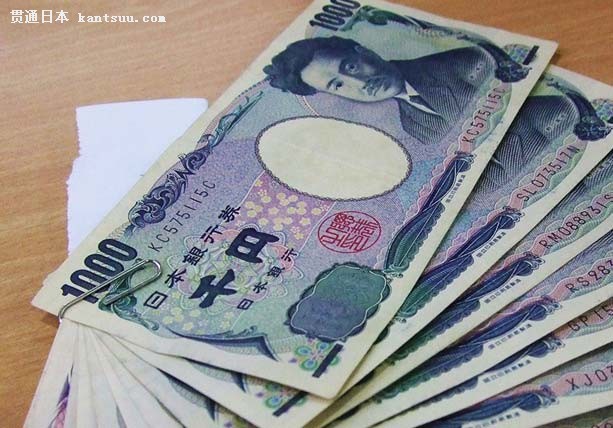当日本人民还在热议要不要将比特币以及虚拟货币等同于传统法定货币时,监管当局和政治家们以及开始讨论另外一个问题了。 作为日本执政党自由民主党的一员,Tsukasa Akimoto向财政大臣Taro Aso提出了一个问题:“您能否考虑与世界接轨,不对比特币征收消费税呢?” Aso responded表示“日本并不是世界上唯一一个对比特币征收消费税的国家”,以此捍卫日本的比特币征税系统。Aso指出澳大利亚便是对虚拟货币征税的国家之一。这是在二月五号众议院预算委员会会议上发生的讨论。 然而,已经有越来越多的声音反对对加密货币或者其他虚拟货币征税。 比特币交易双方均受损 就目前的情况来看,个人使用日元购买比特币需要缴纳8%的消费税,和购买其他商品的税率一致。如此高的税率会导致人们对虚拟货币的热情减退。商家受损尤其严重。 就算考虑到产品入关产生的关税,日本海外的比特币公司和交易所,依然可以以更低的价格将比特币销售给日本买家。进口商品在入关时都会被征收关税,但进口比特币目前还没有严格的监管机构对其进行管理。 日本虚拟货币产业龙头日本权威数字资产负责人Yuzo Kano曾说过:“日本正在反世界之道而行之。对比特币征税会降低日本的竞争力。我们需要一个能够让日本商家和海外商人公平竞争的平台。” 虚拟货币繁盛时代即将到来 日本金融体系委员会(FSA)组织工作小组出台日本首批加密货币监管法案的时候,就已经有了反对征税的声音。自从Mt. Gox崩溃之后,对比特币的监管需求便被提上了日程。 如果草案能够顺利通过并正式立法,Kinouchi表示,日本将为虚拟货币奠定一个健康的监管环境。但是,比特币还是会被视作“物件”,也仍然会被征税。与此同时,电子货币将免于被征收此类税费,因为电子货币在你支付产品和服务方面可以被视为是传统货币的替代品。 今年五月日本将主办G7峰会,世界主要七大国家的财政部长和央行行长将齐聚一堂。七国分别是加拿大、法国、德国、意大利、日本、英国和美国。 可以预见的是,金融科技一定会成为峰会的热门议题。为了积极应对即将到来的金融科技繁盛时期,日本财政大臣Aso表示他讲努力为日本金融科技创新的发展创造一个良好的环境。 也许,先取消对比特的征税,便是第一步。 While Japan currently ponders deeming bitcoin and virtual currencies as currencies similar to conventional fiat currencies, there is another debate surrounding bitcoin that is being talked among regulators and politicians. Tsukasa Akimoto, a member of the Liberal Democratic Party — the ruling party in the country — put forth a question toward Finance Minister Taro Aso, asking: “Can’t you consider not imposing consumption tax on bitcoins in line with the international trend?” Defending Japan’s bitcoin taxation, Aso responded by stating “Japan is not alone [in taxing bitcoins]”. Aso pointed to countries including Australia who tax virtual currencies like Bitcoin. The discussion occurred during a lower house budget committee meeting on February 5. However, there is a growing voice of disapproval toward the practice of taxing the cryptocurrency and other virtual currencies. Dealers and Consumers Get a Bad Bitcoin Deal As things stand, individuals purchasing bitcoin with yen through Japanese exchanges are subject to an 8% consumption tax rate, similar to the tax rate imposed on physical goods. Such a high tax rate is bound to put off Japanese nationals and bitcoin adopters from indulging virtual currencies. For dealers, it’s even worse. Bitcoin companies and exchanges outside Japan are able to sell bitcoins to Japanese buyers at a cheaper rate, despite the consumption tax levied at customs when an asset is coming into Japanese shores. While imported goods are routinely subjected to tax collected at customs, imported bitcoins do not have an overbearing regulator that keeps track of the influx of bitcoins purchased outside the country. Yuzo Kano, head of the Japan Authority of Digital Assets, the industry group for virtual currencies in the country is quoted by the Nikkei as stating: Japan is going against the world. The taxation is bad for Japan in terms of its competitiveness. We need a level playing field that lets Japanese dealers compete fairly with outsiders. Welcoming Virtual Currencies and Fintech The talk of curbing taxes toward bitcoin comes during a time when the country’s financial regulators at the Financial System Council (FSA) have put together a working group that developed a draft of Japan’s first ever cryptocurrency regulations. The call for regulating bitcoin is predicable in the aftermath of the Mt. Gox debacle. If the draft is passed into law, Kinouchi contends that Japan is setting the foundations for a “healthy regulatory environment” for virtual currencies. However, bitcoin will still be taxed, since it will be treated as an ‘object’ in spite of recent developments favoring bitcoin adoption. Meanwhile, electronic money is exempt from the same tax because of its potential use in paying for goods and services as an alternative to conventional currencies. Japan will host the Group of Seven summit in May, a meeting of finance ministers and central bank governors of the seven major economies in the world. The participants are the G7 nations of Canada, France, Germany, Italy, Japan, the United Kingdom and the United States. Predictably, financial technology is bound to be a significant topic of subject during the summit. In a means to proactively prepare for the oncoming fintech boom, Finance Minister Aso confirmed that he “will work to create the necessary environment” to facilitate the swell of fintech innovation in Japan. Killing the tax levied on bitcoin, would be a good way to get started. |
日本社会热议比特币征税问题
新闻录入:贯通日本语 责任编辑:贯通日本语
相关文章
日本前幼儿园职员涉嫌偷拍男童并贩卖视频被捕 涉案人数逾500人
牛丼连锁“すき家”母公司年营收破1万亿日元 创日本外食业纪录
前佐贺市议因利用高龄女性认知功能下降骗取4145万日元,被判刑6年
日经平均股价一度上涨超过800点,徘徊在38,400点以上
日本千叶外房海岸发生连续冲浪事故,2人不幸遇难
香川老旧天文台举办最后一次观测会 望远镜将移至博物馆展出
日本和牛出口额创新高
日本福岛地方社区再造计划获成效
日本青少年自杀率下降得益于心理健康项目
日本企业女性管理层比例首次突破15%
外国人劳动政策放宽以应对劳动力短缺
日本推出新育儿支援政策应对少子化
鈴木えみ、夫との寝室別スタイルを告白「いびきがすごくて一緒には絶対寝ない」
倖田來未、ロサンゼルスで大胆スリットから美脚披露
武田真治、コスプレで別人級の変身!
ジェジュン、「ビジュアルショックだが、私はイケメンだとは思わない」
IVEユジン、故郷・大田でKリーグのキックオフセレモニーに挑戦
NewJeansダニエル、ファンへの感謝と不屈の決意を綴る長文メッセージ
(G)I-DLE、グループ名を「i-dle」に変更し新たなスタート
日テレ郡司恭子アナ、『ミヤネ屋』で結婚を生報告
本仮屋ユイカ、「名前で負けた」と感じた芸能人を告白
島袋寛子、透明感あふれる最新ショットが話題「白に白を重ねたような白」
川瀬もえ、愛車シビック公開で話題沸騰「渋い」「カッコよすぎ」
国民民主党、参院選候補者選定で「身体検査不足」への懸念が浮上
工藤静香、長女24歳誕生日に色鮮やかなワンプレート料理を披露












